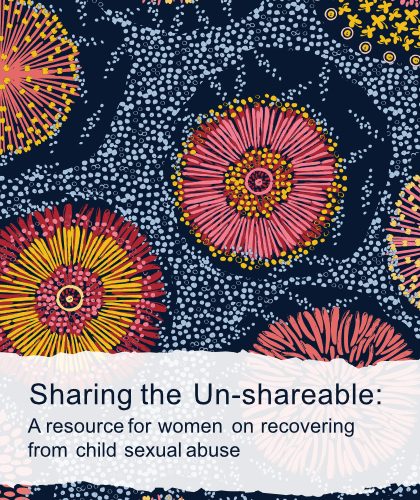About this booklet
The trauma of sexual assault tests every woman’s capacity to survive and find a way forward. It is
a challenge that requires you to access resources learnt from the past and to develop new skills.
This booklet is about navigating a journey to healing for women who have experienced sexual
assault. It is divided into sections so that you can read and use what is relevant to you.
Every woman’s experience of and her responses to sexual assault are different. Sexual assault
can cause short term and long term negative effects, but women can and do recover.
Stories from women who have been sexually assaulted are featured throughout this booklet.
These stories tell of women from different backgrounds, women from the country, young
women, women assaulted by their partner, women who have been drugged and sexually
assaulted, First Nations women and women from non-English speaking backgrounds. These
stores are about women who have navigated this road before you and share with you their
struggles and their insights into what helped them in their healing journey. We hope you discover
the experiences in healing that survivors share. More resources are contained in the last section
and also include specific information for lesbians, women with disabilities and women who are
hearing impaired. We encourage you to read this booklet at your own pace.
Use of language
The terms ‘rape’ and ‘sexual abuse’ are sometimes used interchangeably with sexual assault.
This booklet uses the term ‘sexual assault’ to include all forms of sexual violence. Some women
use the term ‘rape’ to describe their experience although it is no longer a legal term in New
South Wales.
When referring to a woman who has been sexually assaulted, we most often use the term
‘survivor’, to acknowledge the courage and strength of women to survive and overcome the
experience and the impact of sexual assault. We have sometimes used the word ‘victim’ to
reflect that women who experience sexual assault are victims of crime.
We have used the term ‘offender’ to describe the person who committed the crime of sexual
assault. The offender is the person who is legally and morally accountable for the crime

We acknowledge the Wulgurukaba and Bindal people on whose lands and sea we live and work, and acknowledge all First Nations people and cultures; we honour their Elders past, present and emerging. We particularly recognise the unique experiences upon colonisation for First Nations Women and the contribution their voices continue to make within our organisation and the community in working towards reconciliation.
Please be aware that this website may contain the names, images and voices of Aboriginal and Torres Strait Islander people who may now be deceased.
